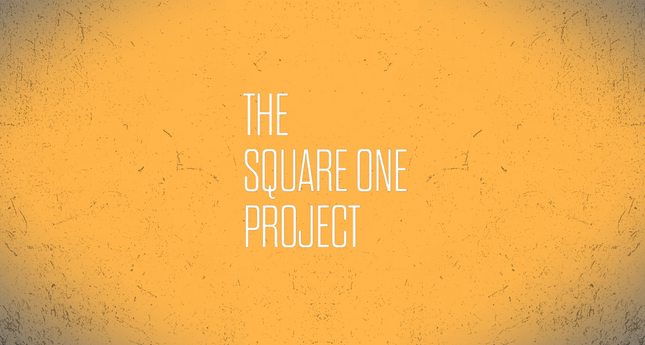The Riverdale Press: Don’t speak for crime victims — just listen to us

April is Sexual Assault Awareness Month, and I’d like to share the name of a woman that readers likely won’t recognize: Darlene “Lulu” Benson-Seay.
Lulu was a survivor of childhood sexual abuse and intimate partner violence, and the child of a murdered parent. Most importantly, she was a loyal sister, friend and mentor to many. Her trauma did not define her, but it did ultimately confine her: Because she never received the support she needed to heal, Lulu was incarcerated for committing a serious crime.
Many years and decades later, after successfully transforming herself into a wise, mature and more loving person, she became the first woman to die of COVID-19 in a New York prison.
When society thinks about crime victims and people who commit crime, we are taught that these groups are separate, “them vs. us.” But as Lulu’s tragic life exemplifies, we are not separate people. The reality is that many of us who have experienced violence at the hands of a loved one or a stranger are the same Black and brown people impacted by mass incarceration.
That’s why many of us in the survivor community are banding together to expand public awareness and encourage community members to fight for evidence-based approaches to improving safety and promoting healing.
As a survivor of childhood sexual abuse myself, I know we cannot end sexual and interpersonal violence by resorting to what we call state violence, including racially biased policing and brutal prison conditions. These systems do not deliver justice, and we refuse to let our government lock up mostly Black people and people of color in prison for endless years and decades in our names.
Surveys show 95 percent of women behind bars are survivors of trauma and abuse, often including sexual violence and intimate partner violence. In a 2020 survey at Bedford Hills prison for women conducted by The Correctional Association, 74 percent of respondents reported they had witnessed some form of violence or abuse by staff, while 53 percent reported experiencing such acts of violence by staff themselves.
There is comparatively little data on the trauma histories and experiences of men in prison, but we know that rates are similarly high.
In New York’s prisons, there is a crisis of aging, sickness and death because of decades of harsh sentencing laws and merciless parole release denials. With people dying in New York prisons every 2.7 days, scholars are calling it “New York’s new death penalty.”
Roughly 1,000 more will surely die in custody, given their long sentences, and many others will die within months of release due to debilitating health.
Currently, people who appear before the New York State Parole Board are often denied based solely on their original conviction — the one thing they can never change. And many others with extreme sentences will never be eligible for parole consideration — including people convicted as teenagers, regardless of whether they have completely turned their lives around.
We are working to pass reforms to the parole system in New York and give people in prison — particularly elders — a better chance of not dying in prison, if they can demonstrate their rehabilitation. The elder parole bill would expand eligibility for parole consideration, and the fair and timely parole bill would ensure parole hearings evaluate people based on who they are today, including any rehabilitative endeavors they have pursued, evidence-based therapeutic programs they have successfully completed, and their re-entry plans.
The parole board would continue to assess people for release on a case-by-case basis. These reforms would go a long way toward undoing the despair of the current system.
According to a national survey on the perspectives of crime victims on criminal justice reform, most survivors want funding for rehabilitation, not endless punishment. Digging deeper, the Downstate Coalition for Crime Victims — a group of survivors and advocates in New York — developed a new agenda for crime victims, including racial justice, accountability, and interventions to stop cycles of violence.
Not on the list? Long prison sentences.
This is explained in part by the reality, as mentioned earlier, that many survivors of violence are, themselves, criminalized. But that’s not the whole story.
The reality is that the legal system doesn’t promote healing or accountability. And it’s certainly not promoting safety — police are generally called, if they are even called, after the violence has occurred. And the vast majority of crime survivors do not engage with the system at all.
We must ask ourselves why that is.
The current system is about vengeance, racism, and shame — everything that creates the conditions that lead to more violence. It silences survivors of color and other marginalized survivors.
Despite this, people behind bars find their own ways to heal, take accountability, and go on to make enormous contributions — helping others to heal and prevent violence with mentorship and life-altering peer-led programs in prison. We need their insights to help prevent violence in communities outside of prison.
Expanding opportunities for parole release will improve safety in our communities. And we must ensure the consideration for such release depends on the person, not the conviction from however many years and decades ago.
Let’s be clear: We cannot and will not minimize heinous crimes, and anyone who has perpetrated real harm must be held accountable. But to me, as a survivor, real accountability means fundamentally changing one’s behavior and giving back — not dying uselessly in a cage.
As Black people and other people of color, we have a history of healing that’s rooted in community — through church, cultural centers, and the arts. We’re about loving each other and finding a common language to help our people heal. Incarceration only serves to further unbind our families and communities.
We need to build new systems rooted in our communities to keep us safe, and we cannot succeed when so many of our brightest minds — our elders, our leaders, our survivors — rot in cages.
The author is a founder of the International Alianza de Mujeres Negre.


